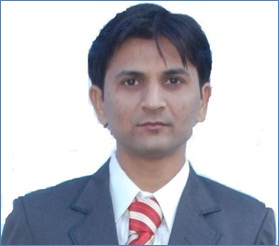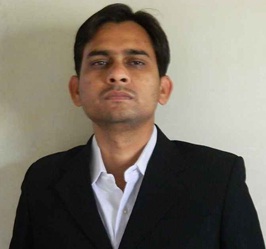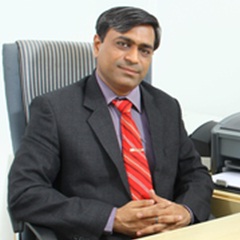Grants Awarded

GUJCOST GRANT (INR 1.30 LAKH) AWARDED TO DR. PANKAJ KAPUPARA
Calcium channel blockers (CCBs) are one of the most widely prescribed drugs for cardiovascular disease. Nifedipine, a 1,4-dihydropyridine, is a prototype drug belonging to the same class, and is an important calcium-channel blocker. However, the major drawbacks associated with calcium-channel blockers such as Nifedipine include poor bioavailability (owing to first pass metabolism), reduced selectivity, and a reduced half-life. However, the adverse long-term effects of these pharmaceutical compounds (e. g., reflex sympathetic activation, weakened muscular contraction, and heart block) are indeed agent dependent and are not related to the class of the drug. Dr. Pankaj Kapupara (Associate Professor, School of Pharmacy, RK University) is currently focusing his attention on the synthesis of CCBs with improvised characteristics, tissue selectivity, and improved pharmacokinetic parameters. The synthesized therapeutic compounds are expected to show some additional benefits, besides the above. These compounds may in fact become lead compounds for the synthesis of calcium channel blocking agents showing anti-hypertensive activity. Dr. Kapupara’s grant application received funding worth INR 1.30 lakh from the Gujarat Council on Science and Technology (GUJCOST) in April 2016.


GUJCOST’S SCI-TECH GRANTS AWARDED TO THREE RKU RESEARCHERS
The Gujarat Council on Science and Technology (GUJCOST) recently awarded three Sci-Tech grants to various researchers from RK University. Electronics and Communications researcher, Mr. Arjav Bavarva, was awarded a grant of Rs. 15,830 for developing a diverse-sensor-mounted wireless globe-trotter. His research team included the following students: Amee Badiani, Krishna Babariya, Nidhi Khunt, and Virat Satani (Dept. of Electronics and Communications Engineering, RK University). The robotic device developed as part of this project has major security applications, and it can be deployed to areas that are not generally accessible to humans. The speed of the robotic devise can be controlled by the operator. Other interesting features include password access and a wireless IP camera for audio and video capture.

Electrical Engineering researcher, Mr. Dhaval Pipalia, received a Sci-Tech grant of Rs. 19,815 from GUJCOST for his work on the role of wireless sensor networks in monitoring and event management. RK University’s engineering students (Dixa Timbadiya, Kajal Pandya, Disha Ranpura, and Ravi Rupareliya) also contributed to this research activity. Wireless sensor networks show tremendous potential and are quite often employed during the production of early warning systems that are in huge demand in regions prone to natural disasters. The MSP430G2553 controller is at the heart of this technology. This controller consumes less power and also has an in-built USB port for operational convenience.

RKU physicist, Dr. Ashish Tanna, received a Sci-Tech grant of Rs. 22,500 from GUJCOST recently. Amit A. Paramar, Amit M. Makvana, Laljee R. Dobariya, and Abhishek B. Jadav studied the electrical properties of ceramic oxides and other materials, under the guidance of Dr. Tanna. Ceramic oxides are widely used in high-temperature electric heaters as well as in thermoelectric power generation. According to Dr. Tanna, studying the electrical properties (electrical conductivity/resistivity) of ceramics and composites is of prime importance. It is a known fact that electrical conductivity and resistivity are important properties of dielectric materials used in a large number of applications. A microcontroller-based system has been devised by these researchers to study the electrical properties of ceramics and other materials, as a function of temperature.

GUJCOST GRANT (INR 2.75 LAKH) AWARDED TO MR. VIPUL PATEL
Drugs are either released instantaneously (thereby necessitating frequent administration, especially in the case of therapeutics with shorter half-lives) or in an extended fashion (not suitable for drugs that undergo first-pass metabolism or develop tolerance). However, in recent years, pulsatile drug release systems have started generating a lot of interest. During pulsatile release, the drug is released rapidly or in a sustained manner after a well-defined lag time. Such a release shows clear advantages for certain types of drug therapies. The variations in the disease state as well as the plasma drug concentration need to be taken into consideration for developing a meaningful drug delivery system. The goal of Mr. Vipul Patel’s research work is to develop a formulation that meets the therapeutic needs for specific pathological conditions (e.g., the symptoms caused by rheumatoid arthritis, dyspnoea, asthma, ulcer, hypercholesterolemia, and epilepsy appear to peak at night or early in the morning). In order to facilitate this research, Mr. Patel (Assistant Professor, School of Pharmacy, RK University) was awarded a grant of INR 2.75 lakh by the Gujarat Council on Science and Technology (GUJCOST) in May 2015.

GUJCOST GRANT (INR 1.05 LAKH) AWARDED TO DR. PRAVIN TIRGAR
Heart failure is the physiological state in which the cardiac output is insufficient to meet the biological requirements of the body and that of the lungs. The incidences of heart failure are increasing every year not only because of the increasing life span, but also because of the increasing prevalence of known risk factors such as hypertension, diabetes, dyslipidemia, and obesity. Digoxin is one of the most widely used cardiotonic agents available for the treatment of congestive heart failure. The adverse effects of digoxin include nausea, vomiting, insomnia, confusion, depression, disorientation, hallucination, ventricular fibrillation, extra-systole, and heart blockage. It also interacts with various other therapeutic drugs. Recent developments in the area of herbal drug research and phyto-pharmaceuticals show great promise. Dr. Tirgar’s group is keenly interested in developing safe and cost-effective cardiotonic molecules and is currently investigating the beneficial effects of Linum usitatissimum (popularly known as common flax or linseed) on doxorubicin-induced congestive heart failure, using animal models. In order to facilitate this research, Dr. Tirgar (Associate Professor, School of Pharmacy, RK University) was awarded a grant of INR 1.05 lakh by the Gujarat Council on Science and Technology (GUJCOST) in May 2015.

GUJCOST GRANT (INR 8.50 LAKH) AWARDED TO DR. CHANDRESH D. SANKHAVARA
Dr. Chandresh D. Sankhavara from the School of Engineering was awarded a grant of INR 8.5 lakh by the Gujarat Council on Science and Technology (GUJCOST) in December 2014. Dr. Sankhavara was awarded this grant for a period of two years to conduct original research work on the production of bio-diesel from karanja oil. Dr. Sankhavara’s Ph.D. student, Mr. Rupesh Patel, is currently working on this project. The primary objectives of this project include producing bio-diesel from karanja oil using heterogeneous catalysis and carrying out the performance analysis/exhaustive gas analysis of a diesel engine using the catalytically synthesized bio-diesel. An artificial neural network will also be developed and validated from the generated experimental data.

GUJCOST GRANT (INR 2.00 LAKH) AWARDED TO DR. KETAN V. SHAH
The oral route of administration is considered to be the most widely accepted and flexible alternative because of the convenience of self-administration, pill compactness and easy manufacturing. About 60% of all the prescribed medicines are in the form of oral medications. However, a major drawback of the commonly prescribed oral medications such as tablets and capsules is that they are sometimes difficult to swallow. This leads to patient incompliance, particularly in the case of pediatric and geriatric patients. Other drawbacks include lower bioavailability and long onset time. Although parenterals (injections, infusions, and implantations) and liquid orals (syrups, suspensions, emulsions, etc.) are possible alternatives, they both face significant drawbacks (painful drug delivery in the case of parenterals and the problem of accurate dosage in the case of liquid orals), thereby resulting into patient incompliance. In order to overcome these known problems, Dr. Shah’s research group is designing sublingual dosage forms to avoid the first hepatic pass metabolism, to enhance the drug’s bioavailability, to provide better absorption, and to rapidly facilitate the onset of action. The expected benefits include decreased drug dosage, fewer side effects, and an overall increase in patient compliance. In order to facilitate this research work, Dr. Shah (Associate Professor, School of Pharmacy, RK University) was awarded a grant of INR 2.00 lakh by the Gujarat Council on Science and Technology (GUJCOST) in June 2014.
